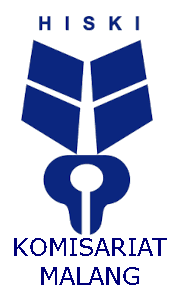UNVEILING MORAL GROWTH IN CHILDREN: AN ANALYSIS OF ENID BLYTON’S FIVE ON HIKE TOGETHER
Abstract
Children's literature entertains and imparts moral lessons, shaping young minds by fostering empathy and helping them navigate moral dilemmas. This study aims to explore the moral development of the child characters in Enid Blyton’s novel Five on a Hike Together by applying Jean Piaget’s theory of cognitive development and Lawrence Kohlberg’s theory of moral development. The objectives of the study are: (1) to analyze how the children’s thoughts and actions reflect stages of moral growth, (2) to assess the influence of friendship and cooperation as catalysts for their development. This research is conducted using qualitative methods through close reading and textual analysis, focusing on dialogue, narrative progression, and character interaction. The findings reveal that the characters experience a range of moral dilemmas that encourage them to progress from obedience-based reasoning to more autonomous and principle-based judgments. The analysis shows that both Piaget’s and Kohlberg’s frameworks are effective in tracing the characters’ evolving sense of right and wrong, particularly as they respond to danger, trust, and responsibility. Ultimately, the study highlights how Five on a Hike Together offers a nuanced portrayal of moral growth in childhood through adventure and friendship.
References
Abrams, M. H. (1999). A glossary of literary terms (7th ed.). Harcourt Brace College Publishers.
Ateequ, S. I. (2015). Using children’s literature in the teaching of moral education in Nigerian primary schools
Blyton, E. (2010). Five on a hike together. Hodder Children’s Books. (Original work published 1951)
Clement, M. (2014). The development of free indirect constructions in Dutch novels. Journal of Literary Semantics, 43(2), 127-141. https://doi.org/10.1515/jls-2014-0009
Crain, W. C. (2011). Theories of development: Concepts and applications (6th ed.). Pearson.
Cummings, R., Dyas, L., Maddux, C. D., & Kochman, A. (2001). Principled moral reasoning and behavior of preservice teacher education students. American Educational Research Journal, 38(1), 143-158. https://doi.org/10.3102/00028312038001143
Ethics Unwrapped. (n.d.). Moral reasoning. UT Austin. Retrieved July 2025, from https://ethicsunwrapped.utexas.edu/glossary/moral-reasoning
Huck, C. (1987). Children's literature in the elementary school. Holt, Rinehart, and Winston.
Killen, M., & Dahl, A. (2021). Moral reasoning enables developmental and societal change. PMC.
Kitamura, E., & Gunji, Y. (2011). Evolving lattices for analyzing behavioral dynamics of characters in literary text. TripleC: Communication, Capitalism & Critique: Open Access Journal for a Global Sustainable Information Society, 9(2), 502-509. https://doi.org/10.31269/vol9iss2pp502-509
Klinga, J. (2018). Children’s literature as character education: Moral judgment in The Chronicles of Narnia (Master’s thesis, University of Tampere). Retrieved from https://urn.fi/URN:NBN:fi:uta-201811012763
Kohlberg, L. (1984). The psychology of moral development: The nature and validity of moral stages (Essays on Moral Development, Vol. 2). Harper & Row.
Kristiyani, I., Juniarta, I. P. A. K., & Mahendrayana, I. G. (2023). Character education values on Alice’s characterization in Alice’s Adventures in Wonderland by Lewis Carroll. International Journal of Language and Literature, 5(4), 179–187. https://doi.org/10.23887/ijll.v5i4.31863
Kumar, S., & Choudhury, S. (2023). Cognitive morality and artificial intelligence (AI): A proposed classification of AI systems using Kohlberg's theory of cognitive ethics. Technological Sustainability, 2(3), 259-273. https://doi.org/10.1108/techs-12-2022-0047
Lickona, T. (1991). Educating for character: How our schools can teach respect and responsibility. Bantam Books.
Piaget, J. (1964). Cognitive development in children: Development and learning. Journal of Research in Science Teaching, 2, 176-186. https://doi.org/10.1002/tea.3660020306
Piaget, J. (1932). The moral judgment of the child. Free Press.
Quan-Hoang Vuong. (2023). Value (ethics). In Wikipedia. Retrieved July 2025, from https://en.wikipedia.org/wiki/Value_(ethics)
The Independent Lodge of Theosophists. (2021, January 16). www.FilosofiaEsoterica.com. https://www.filosofiaesoterica.com/the-independent-lodge-of-theosophists/copy
Utami, R. J., Zulfiati, H. M., & Hasanah, D. (2023). Moral development of grade IV elementary school students based on Kohlberg’s theory. Edumaspul: Jurnal Pendidikan, 7(2), 5566-5571. https://doi.org/10.33487/edumaspul.v7i2.6796
Copyright (c) 2025 Jurnal Pembelajaran Sastra

This work is licensed under a Creative Commons Attribution-NonCommercial-NoDerivatives 4.0 International License.
The Authors submitting a manuscript do so on the understanding that if accepted for publication, copyright of the article shall be assigned to Jurnal Pembelajaran Sastra (Journal of Literary Education) as publisher of the journal, and the author also holds the copyright without restriction.
Copyright encompasses exclusive rights to reproduce and deliver the article in all form and media, including reprints, photographs, microfilms and any other similar reproductions, as well as translations. The reproduction of any part of this journal, its storage in databases and its transmission by any form or media, such as electronic, electrostatic and mechanical copies, photocopies, recordings, magnetic media, etc. , are allowed with a written permission from Jurnal Pembelajaran Sastra (Journal of Literary Education).
Jurnal Pembelajaran Sastra (Journal of Literary Education), the Editors and the Advisory International Editorial Board make every effort to ensure that no wrong or misleading data, opinions or statements be published in the journal. In any way, the contents of the articles and advertisements published in the Jurnal Pembelajaran Sastra (Journal of Literary Education) are sole and exclusive responsibility of their respective authors and advertisers.








